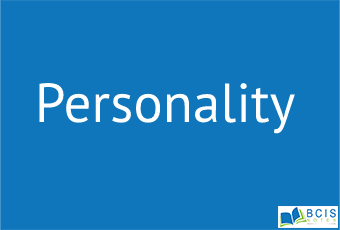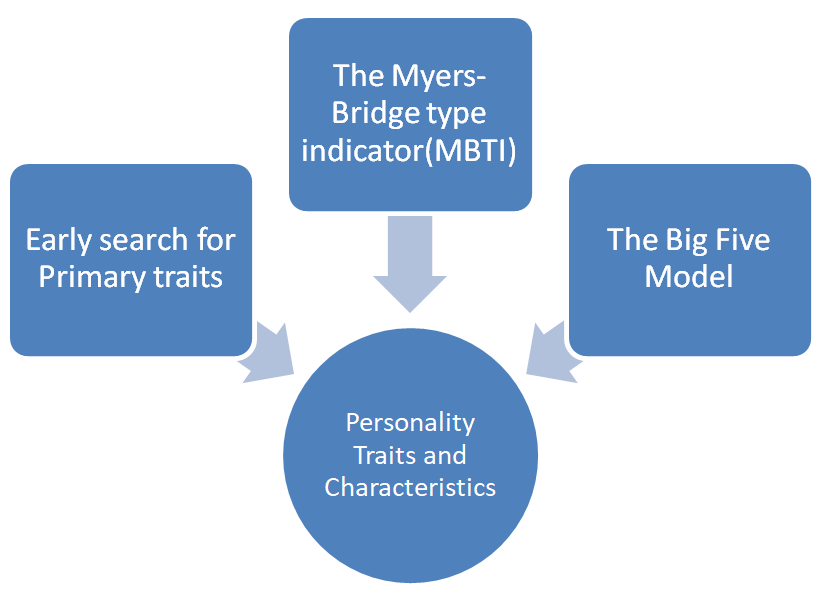
Personality
Definition:
The word Personality is derived from the Latin word Per Sona which means to speak through. The personality of an individual is unique. The Latin meaning is particularly relevant to the contemporary analysis of personality. In short, the term includes:
- External appearance and behavior.
- The inner awareness of self as a permanent organizing force, and
- The particular organization of measurable traits, both inner and other.
Concept:
Personality is a concept which we use regularly in our daily life routine when dealing with other people. Behavior is influenced by personal and environmental factors.
B=f(P, E)
or B=f(Personality, Environmental factors)
There is no consensus on what personality is. It means different things to different people. To some, it means one’s charm, dress, and attractiveness, to others, it means a unitary mode of response to life situations.
Types:
Personality Traits and Characteristics:

Early search for Primary Traits:
Some Primary Traits:
| Reserved | Outgoing |
| Less intelligent | More intelligent |
| Affected by Feeling | Emotionally stable |
| Submissive | Dominant |
| Tough-minded | Sensitive |
Myer’s Briggs Type Indicator:
It measures how people prefer to focus their attention(extroversion vs introversion), collect information (sensing vs intuition), process and evaluate information(thinking vs feeling), and orient themselves to the outer world (judging vs perceiving).
- Sensing/intuition: some people prefer collecting information through their five senses and in contrast, intuitive people collect information non-systematically.
- Thinking/feeling: thinking types rely on scientific cause/effect and logic to make decisions, but in feeling types, people take their emotions to decide; they weigh more on other people who might get affected rather than thinking about their own personal benefit.
- Judging/perceiving: Some people prefer order and structure about the outer world. These judging types enjoy the control of decision-making and want to resolve problems quickly. On the other hand, perceiving types are more flexible; they would love to adopt spontaneous events as they unfold and want to keep their options open.
Big five Personality Traits:
- Extroversion (Extrovert vs Introvert)
- Agreeableness(High awareness vs Low agreeableness)
- Conscientiousness(High vs Low)
- Emotional Stability(Stable vs Unstable)
- Openness to Experience(Open vs Closed)
Determinants:
|
Nature(Inborn Factors): 1. Biological factors:
|
Nurture (environmental factors):
2. Cultural factors |
Individual differences:
Factors affecting individual behavior are as follows:
- Ability (Aptitudes, Learning)
- Motivation (attitudes, beliefs, values, needs, goals)
- Perception(objects, people, situations)
- Personality(trait, characteristics)
- Organizational systems and resources(leadership, rewards, facilities, structure)
Major personality attributes influencing behavior:
| Locus of Control( internal vs external) |
| Machiavellianism(high mach. vs low mach.) |
| Self-esteem (high self-esteem vs low self-esteem) |
| Self-monitoring/ adjusting (high self-monitoring vs low self-monitoring) |
| Risk-taking (high risk vs low risk) |
You can also check other similar contents of OB as Learning and Behavior || Perception, Personality, and Learning.

Leave a Reply